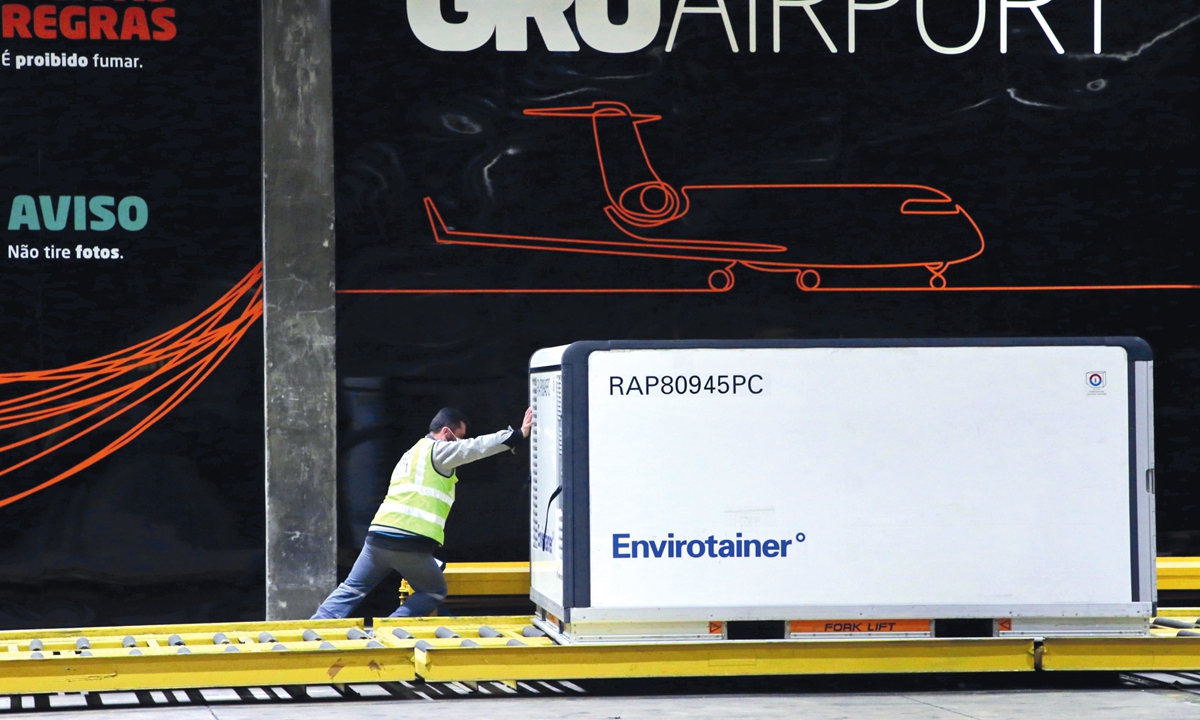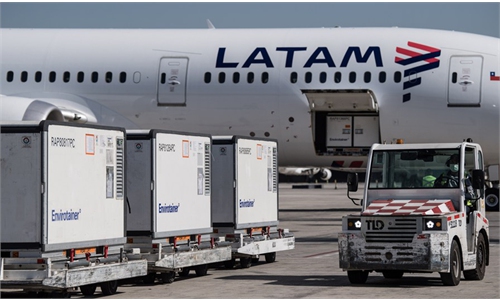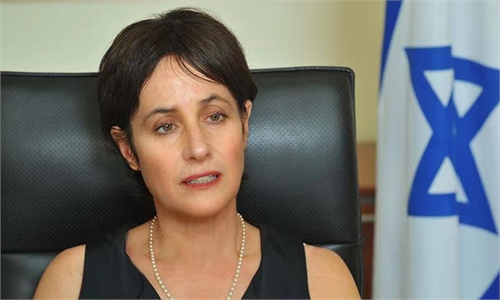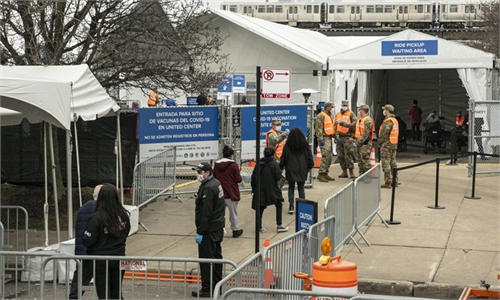CORONAVIRUS
LatAm countries turn to China for vaccines amid US snub
Vaccine distribution not about geopolitics: experts

The cargo shipment of COVID-19 vaccines produced by the Chinese company Sinovac Biotech is being dispatched at the Cumbica airport in Guarulhos, Sao Paulo state, Brazil, on July 20. Photo: AFP
Some Latin American countries, which are seen as the US' backyard, have turned to China to fill their domestic COVID-19 vaccine needs, as the US turned down their Latin brothers' request for the sake of US President Joe Biden's version of "America First."
Experts reached by the Global Times on Thursday said that some US politicians and media, which portray China's kindness as "using vaccines to insert leverage over other countries," have exposed their selfishness and an outdated view of the global order.
Reuters reported on Wednesday that Brazilian health ministry officials asked the Chinese Embassy in the country to help secure 30 million doses of Chinese COVID-19 vaccine, which proved to be effective in Brazil, in the first half of 2021, to ensure inoculations run smoothly.
According to the media, Brazil, with a second highest COVID-19 death toll, is facing a shortage of foreign vaccine doses, and it has only inoculated 4 percent of its population.
Mexico has also turned to China for help as the US snubbed their requests. The country received China's pledge of 22 million doses, its Foreign Minister Marcelo Ebrard said on Tuesday.
Media said that three million doses of China's CanSino COVID-19 vaccine arrived in Mexico on Wednesday.
Mexico has placed an order for an additional 10 million doses of China's Sinovac COVID-19 vaccine to be delivered between May and July, on top of the 10 million already ordered, which are due to arrive between March and May.
Mexican Foreign Minister Marcelo Ebrard said that 12 million Sinopharm vaccine doses will be ordered once approved by the Mexican health authority, media reported.
An employee from China's pharmaceutical giant Sinopharm Group told the Global Times on Thursday on condition of anonymity that domestic and foreign vaccine demand is very high, so external supply is difficult to achieve overnight.
In contrast, White House press secretary Jen Psaki recently said that the US will not share a portion of vaccine before every US citizen has access. She said in early March that the US is concerned China would use vaccines to "engage with countries."
Li Haidong, a professor at the Institute of International Relations of the China Foreign Affairs University, told the Global Times on Thursday that on the issue of vaccine supply, it shows the US does not treat Latin American countries as equals, but regards them as its backyard, which is an outdated view of the international order.
Both China and the US, as capable countries, should extend a helping hand to other countries in need, rather than use vaccines as a tool of competition and turn the issue of global public health products into a geopolitical one, Li said.
"Latin American countries have been exploited by the US. The attitude of the US toward Latin American countries on vaccines once again demonstrates its utilitarianism, which is to use what can be used and discard what cannot be used," Li said.
Jiang Shixue, director of the Center for Latin American Studies at Shanghai University, told the Global Times on Thursday that the vaccine supply spat is unlikely to affect US-Latin America ties. However, the Biden administration, which indicated that it wants to repair relations with Latin American countries that have gone backwards under Trump administration, has shown selfishness over vaccines supply.
"Western countries blame China for everything it does… If China doesn't provide the vaccine to Latin American countries, China will be accused of not taking up its international responsibilities. If China provides the vaccine, there will be other conspiracy theories," said Jiang.
China opposes "vaccine nationalism," rejects any "vaccine divide" or any attempt to politicize vaccine cooperation, State Councilor and Foreign Minister Wang Yi said Sunday. Wang called for enhancing equitable vaccine distribution and make it accessible and affordable for developing countries.




